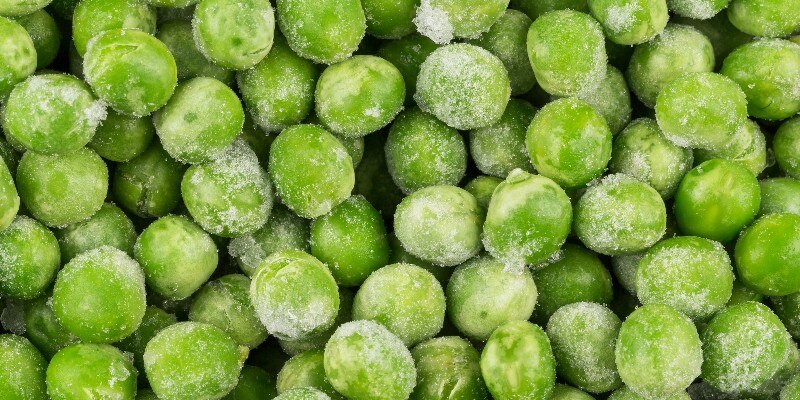by Melissa Chichester
Keeping your pantry and kitchen stocked with fresh foods isn’t always easy. When the unexpected happens, having a properly stocked kitchen will help you eat a nutritious diet in stressful circumstances. That doesn’t mean accumulating pre-packaged meals that often contain excess sodium and preservatives. Instead, we’re going to teach you about some of the best foods to have on hand.
A two-year-long study in the Journal of Food Composition and Analysis found that in some cases, frozen foods actually retain nutrients better than fresh foods. When foods are “flash-frozen,” or frozen quickly at an extremely low temperature, researchers in the study found that they hold nutrients better than produce sitting on the shelf.
There are a surprising amount of foods that you can freeze, some of which you might not expect but use often!
Onions: If you can’t go out to the store, having frozen chopped onions in the freezer is essential. Onions are used in many meals and add intense flavor to savory sauces, rice, and even add flavor to meats. Onions still amp up the flavor when they are frozen, so chop some up to have on hand, or buy a bag of frozen onions.
Green beans: Even in the freezer, green beans maintain their crunch when thawed. They are easy to add to foods such as soup and stir fry. Plus, they are highly nutritious and contain Vitamin C, magnesium, and Vitamin B-6.
Berries: Raspberries, cranberries, blueberries, and just about any other berry you love will freeze well. They hold their shape and can be easily tossed into smoothies without thawing. After thawing, they do well in baked goods and sauces. Berries are one of the best foods you can eat. They contain valuable antioxidants that help you maintain good health.*
>>7 Red Fruits and Vegetables to Add to Your Diet
Peaches: Peach wedges freeze well and thaw well for use in cooking and baking. Boil them down to use in purees and sauces, or add them to baked goods, oatmeal, and pies. Peaches can also be used in smoothies while frozen. They contain magnesium and fiber, two important nutrients most people do not get enough of!

Peas: Peas are one of the easiest foods to freeze. Whether they are used in pot pies, soups, or stir fry, peas hold their shape well and are easy to use right out of the freezer after thawing. Peas are also an excellent source of Vitamin C and also contain Vitamin A, Vitamin B-6, and iron.
Spinach: Frozen spinach is usually shrunk to pack a lot in a small space. This is good news for all of the nutrients it provides! You can use cooked spinach in any recipe that requires cooked spinach, including veggie lasagna.
Broccoli: Frozen broccoli is a source of Vitamin C and fiber. Even when frozen, it is easy to cook into dishes, or you can steam it on the side. If you have trouble getting green vegetables into your diet regularly, keep frozen broccoli on hand.
>>Honey Orange Vitamin C Wellness Shot Recipe
Dried beans and lentils: Dried beans and lentils contain high amounts of fiber and add delicious meaty texture to many meals. Whether they are part of the main course or part of the side dish, beans can be used for any meal of the day!
Honey: Honey has a very long shelf life and can be used to sweeten just about anything from yogurt to coffee to tea. Plus, it can be used in baked goods and drizzled on oatmeal.
Vinegar: Vinegars come in a variety of flavors and last for a long time in the pantry. They can be used in sauces and dressings, plus soups and stews, to give just about any savory meal a zing of extra flavor.
Canned fish: Fish contains nourishing and essential omega fatty acids. Canned fish is more affordable than fresh fish and can be used in countless recipes. Go beyond tuna and keep canned salmon on hand, too!
Canned vegetables: Canned veggies, such as corn, beans, and pumpkin will store for a long time and are easy to use.
>>8 Nutritious Nuts You Need to Know
Most people think of nuts as being for the pantry only, but nuts can also be frozen! While they already have a long shelf life, nuts store well frozen and in the fridge. Eat them alone, add to oatmeal and salads, or used in baked goods.
What are your favorite freezer and pantry foods?